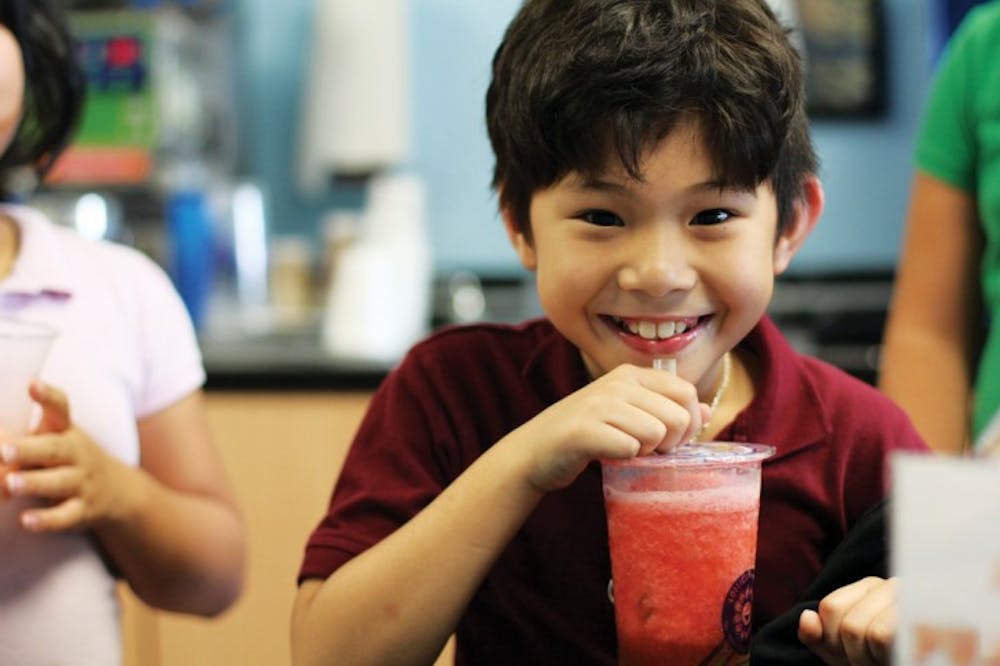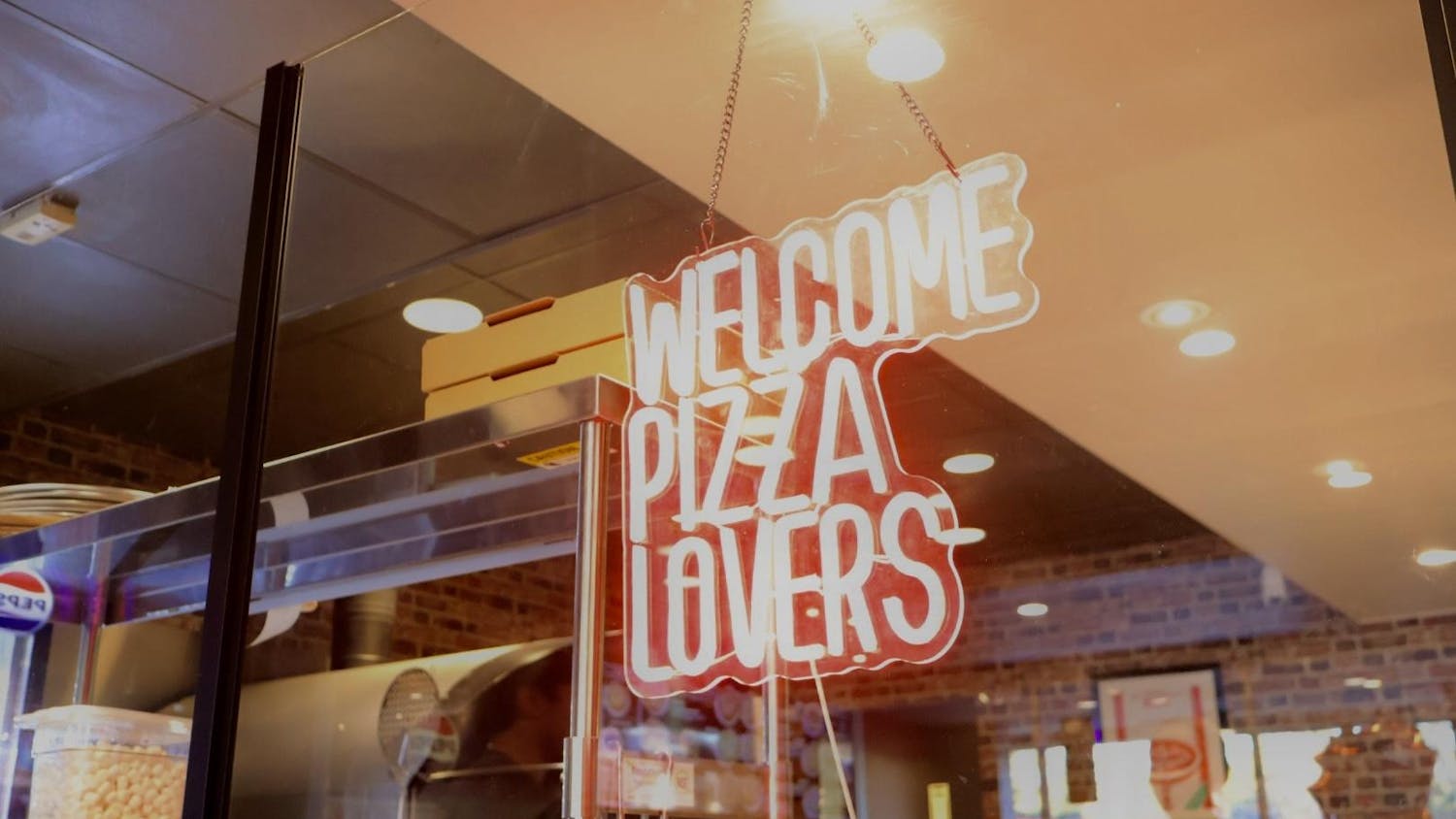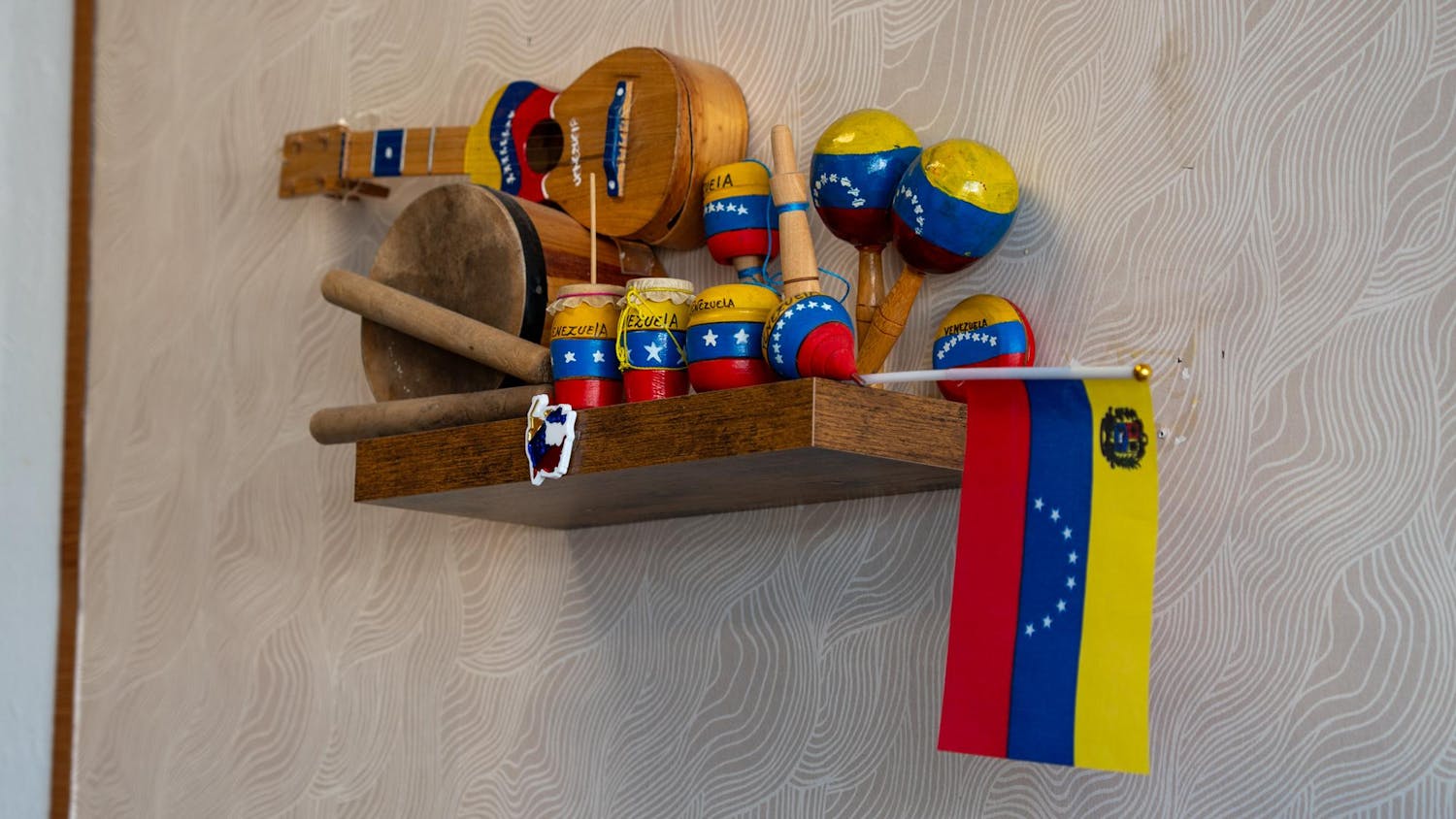Amy Rigby found a lifelong love as a freshman.
The UF telecommunication graduate would drive to a strip mall off of Archer Road to see her secret companion at Lollicup.
After an employee would hand her a brightly colored beverage with dark pearl-like balls at the bottom, Rigby said she would instantly feel better.
“My true obsession is with the taro-flavored bubble tea. It’s unlike any flavor in the world,” the 22-year-old said. “It’s just delicious.”
Local vendors of bubble tea, also known as boba tea, are afraid they may lose business after a German hospital published a vague test that found a few toxins in a sample from a German bubble tea chain.
The tea, which is mixed with fruit juice or milk, has small chewy balls of tapioca that have become the center of a firestorm. The story went viral online, which alarmed both consumers and sellers.
“I work so hard to do this, and I don’t want to lose any potential customers,” said Nam Diep, owner of Lollicup in Gainesville. “I want to show that our product is safe for consumption.”
The test results, released by University Hospital Aachen, said there were three known toxins in tapioca balls from a German bubble tea chain, including polychlorinated biphenyls, or PCBs.
Keith Schneider, a UF food science and human nutrition associate professor, said PCBs have been linked to cancer and other ailments.
“It can cause some more acute symptoms like acne and rashes,” Schneider said. “And it can damage the liver over long time exposures, disrupt immune responses and cause fatigue.”
The tapioca balls tested by the hospital were shipped to Germany from Taiwan, which is one of the biggest suppliers of bubble tea’s tapioca.
Some have called into question the legitimacy of the test, since the results don’t explain how the test was conducted or how much PCB the hospital staff found.
“It all depends on the levels that were found,” Schneider said. “There’s a certain number of PCB that’s allowed in your drinking water, granted it’s measured in parts for billion.”
The chemical hasn’t been actively used in the United States since the 1970s.
“People who worked on that had more lymphomas and other things,” Schneider said. “That’s when people started to take notice.”
Margaret James, a UF medicinal chemistry professor, said traces of the substance remain in the environment because PCB has a very long half-life.
“They’re very persistent,” James said. “That’s why they tend to be found in things with fatty material in them.”
She said most complaints about PCBs in food come from milk, which is used to make tapioca pudding, cheese and other dairy products.
Despite the hoopla, Rigby said she’ll still quench her thirst with the exotic drink.
“It wouldn’t affect me because it was in Germany,” Rigby said. “I think you’d have to consume a ton of it to get an effect.”
Contact Shelby Webb at swebb@alligator.org.
Peter Nguyen, 9, enjoys a strawberry slush with green apple jelly at Lollicup on Monday afternoon. “I like it because it tastes good,” Nguyen said. His favorite drink is the Oreo Snow.






